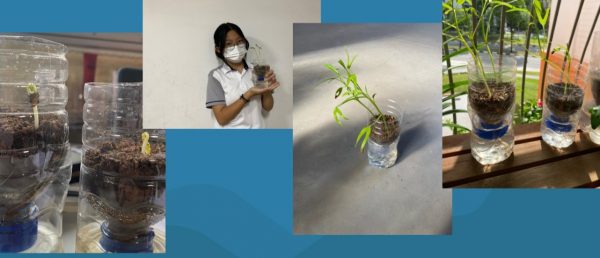Science
Vision
Reflective and contributing individuals who are well-equipped with knowledge and skills for a world where change is the only constant
Mission
Science embodies a comprehensive understanding of natural systems and processes. While well-established theories form the foundation of our knowledge, they are not static; rather, they undergo continuous refinement and expansion. In the ever-evolving landscape of our world, it is imperative that our students possess the knowledge and skills necessary to adapt and enhance their understanding over time.
The Science Department is committed to providing students with a holistic grasp of the perpetually changing world through an inquiry-based teaching and learning approach. Our educational philosophy encourages exploration, risk-taking, curiosity, and motivation. We foster engagement in reflective and creative thinking, fostering connections between theoretical concepts and real-life situations. Ultimately, we aim to equip our students with the tools to refine their understanding as they navigate the challenges of an ever-changing global environment.

Scientific inquiry
A methodical approach designed to cultivate students' understanding of a comprehensive inquiry process, providing them with opportunities to actively participate in the investigative journey.
Key processes:
-
Thinking Routines
-
Practical Laboratory Experiences
-
Investigative assignments
-
Collaborative projects
Critical, Adaptive and Inventive Thinking
In the educational landscape, fostering metacognition—deliberate contemplation on thinking processes, learning strategies, and self-awareness—serves as a cornerstone. Aligned with the 21st Century Competencies (21CC) Standards and Benchmarks, our focus is on nurturing students' ability to:
-
Generate novel ideas
-
Exercise sound reasoning and reflective thinking to make good decisions
-
Manage complexities and ambiguities well
The cultivation of Critical, Adaptive, and Inventive Thinking is seamlessly woven into various aspects of the Science experiences. This includes immersive project work, enriching field trips, and STEM projects. Through explicit integration of thinking skills, problem-solving techniques, and the application of evaluative rubrics, students embark on a holistic developmental journey. This approach not only enhances their metacognitive abilities but also aligns with real-world scenarios, preparing them for the challenges of a dynamic future.
Mastery learning
A pedagogical approach where students must attain proficiency at the prerequisite level before progressing to the next stage of learning. Should a student fall short of mastery, targeted support and scaffolding are provided, creating a continuous cycle until the learner successfully achieves mastery and advances to the subsequent stage of education.
Home-Based Learning (HBL)
A platform designed to foster self-directed learning and cultivate students' problem-solving skills. Science lesson packages are made accessible online through the Student Learning Space (SLS) for the students to access from home.
Students will be guided so that they can learn from the SLS portal, textbook, school-prepared resources, and learn through simple home experiments, collaborative projects using personal learning device. There will be opportunities for the students to video conference with their subject teachers to seek clarifications in learning. This multifaceted approach not only empowers students to take charge of their education but also encourages the development of resilience in tackling challenges encountered during the learning process.


